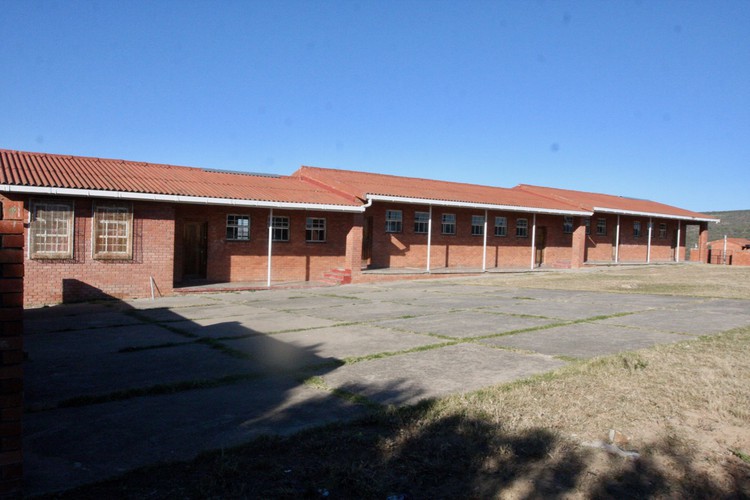No education for village children after government shuts down their school
Without money for transport, learners can’t get to nearest school in rural Eastern Cape
Since 2015, the Eastern Cape government has undertaken a process of rationalising the number of schools in its province. It has been closing schools it deems unviable, those with fewer than 150 pupils, and merging them with other schools. The process has had cautious support from civil society organisations. However, its poor implementation has had serious consequences for some learners.
Mhala Primary School in Xesi Village, outside East London, was one of the schools not reopened after the Easter holidays. Its more than 60 learners were to be transported to Lungisa Primary School, seven kilometres away, and taxi owner Zamekile Ncede was engaged by the education department.
Ncede says he was not paid. He says he was told there was a crisis with school transport that needed to be solved. After three weeks, he stopped transporting the learners. He was paying the drivers out of his own pocket.
Parents then started paying R400 per child per month for transport. But not all parents can afford this.
Notsukumetse Hlekani, grandmother of ten-year-old Liyema, said, “Our kids used to walk a few minutes to school and we were not paying even a cent. But now, our government decided to close our school without even consulting us as parents of these kids. Now, my granddaughter is no longer attending school because I cannot afford to pay for transport.”
She said: “It was my dream to send my granddaughter to school so that she can have a better future like other kids. But our government decided to limit our kids to get education.”
Nolusapho Potwana, grandmother of seven-year-old Kuhle Potwana, says her grandson is now looking after livestock because there is no money for transport. “Some kids tried to go to school by foot,” she said, “but they stopped because the distance is long for them.”
Children who walk to Lungisa Primary have to cross the R72.
Nomboniso Dama, 77, is paying the R400 for her grandchild. “It is not that I can afford to pay this, but I pay it because I want my grandchild to get education. There are times where we live at home without food because of this school transport.”
Mfuniseli Dama, 72, said, “Most of the children here are not educated because we do not have a high school [nearby]. Government does not transport our kids who want to go to high school.”
Spokesperson for the Eastern Cape Department of Education Mali Mtima said, “We handed letters to these schools saying they must give reasons why their school must not be closed. These letters we handed [over] last year, but I cannot remember the date. So these schools were given 30 days to reply in this matter.”
Mtima said that teachers have been relocated to other schools. “As we speak, the education and transport departments are busy trying to solve this problem so that kids can be at school and get education. Yes, we are aware about the situation of Mhala Primary school,” he said.
Support independent journalism
Donate using Payfast

Don't miss out on the latest news
We respect your privacy, and promise we won't spam you.
Letters
Dear Editor
We live on a private nature reserve on the Karkloof Road outside of Howick. For the past 17 years, to my knowledge, there has been a private bus service which served the entire valley community.
There are three "Farm schools" in our valley, some better than others, serving the local children of primary school age. In the opinion of the staff that work for us, the nearest one, which is at least 7 Km's away, is not providing the education they want for their children. The school is basic, with only two classrooms, and last time I visited, there was no electricity connected to the school.
Shortly after the 2016 Local Government Elections, the bus service was cancelled by the Mngeni municipality, as they said there was no valid license for the route. The Mngeni Mayor's wife, together with the Deputy Mayors wife, own taxis, and they soon implemented a service to the school children of the valley to transport them to Howick, for R400 per child per month. I was told they did not take the children to the school gates, and the children then had to pay another taxi to take them to their school.
There was an outcry and a protest gathering by the parents in the Valley, and the Department of Education was approached. To their credit, they organized a bus to take the HIGH SCHOOL children only, for a minimal sum. This however, still left the parents of the Primary School children severely out of pocket, as they have to pay R400 per month to get their children to school.
A further negative impact of this change in the transport arrangements is that there is very little transport available during school holidays, as the DOE bus does not run. Additionally, the local workers and residents of the Valley, of whom there are many, are having to pay these exorbitant taxi fees to get to work or get into Howick to shop. The Taxis do not service us during school holidays, as we are the very end of the route on a dust road.
So barriers still remain for the rural and marginalized population to achieve a decent education.
© 2017 GroundUp. 
This article is licensed under a Creative Commons Attribution-NoDerivatives 4.0 International License.
You may republish this article, so long as you credit the authors and GroundUp, and do not change the text. Please include a link back to the original article.

